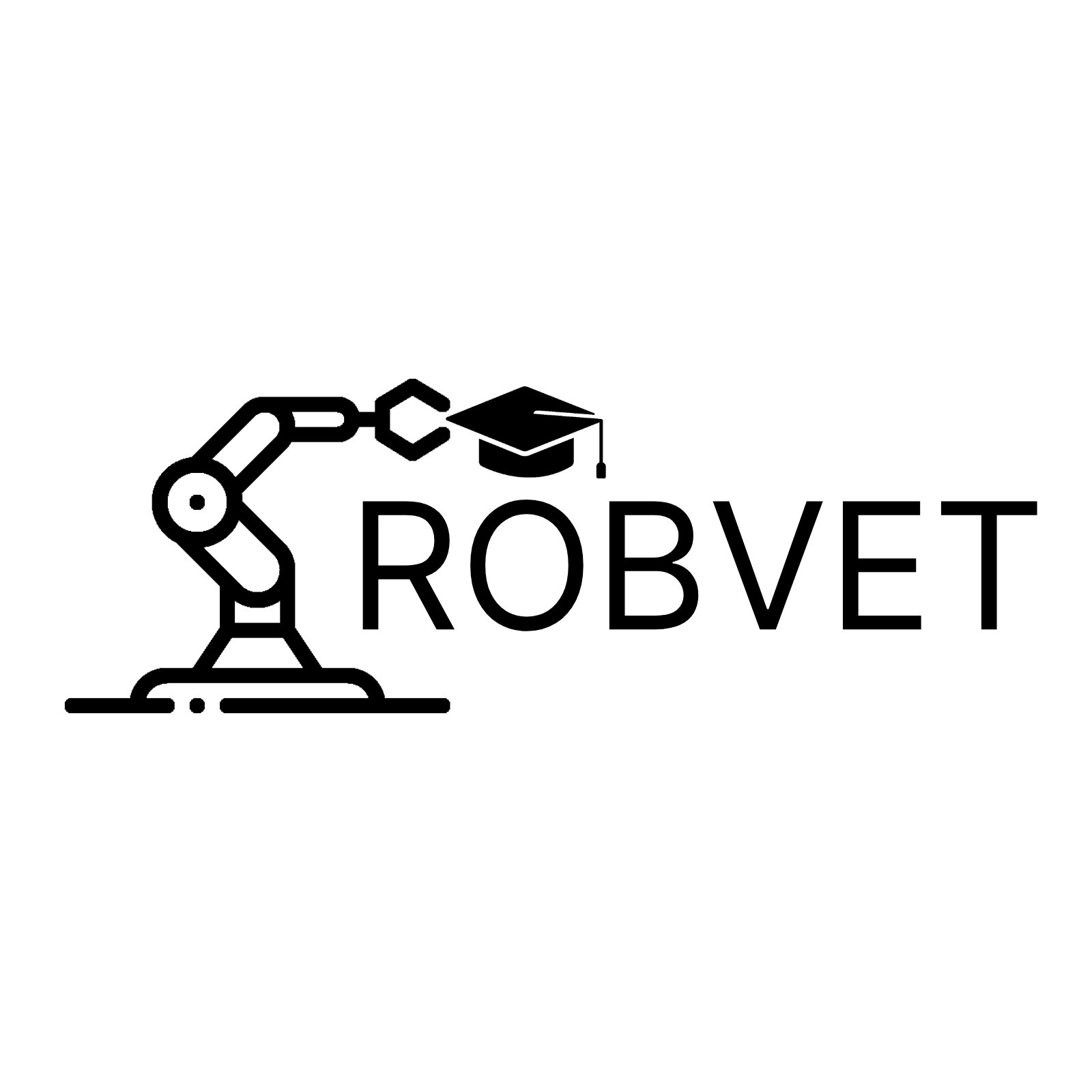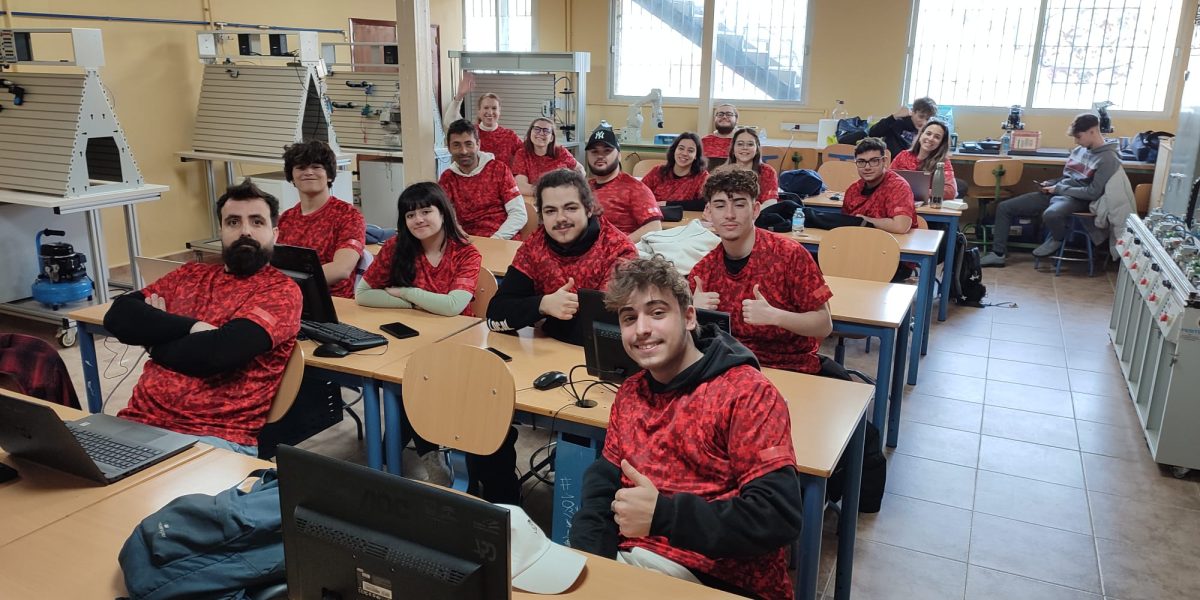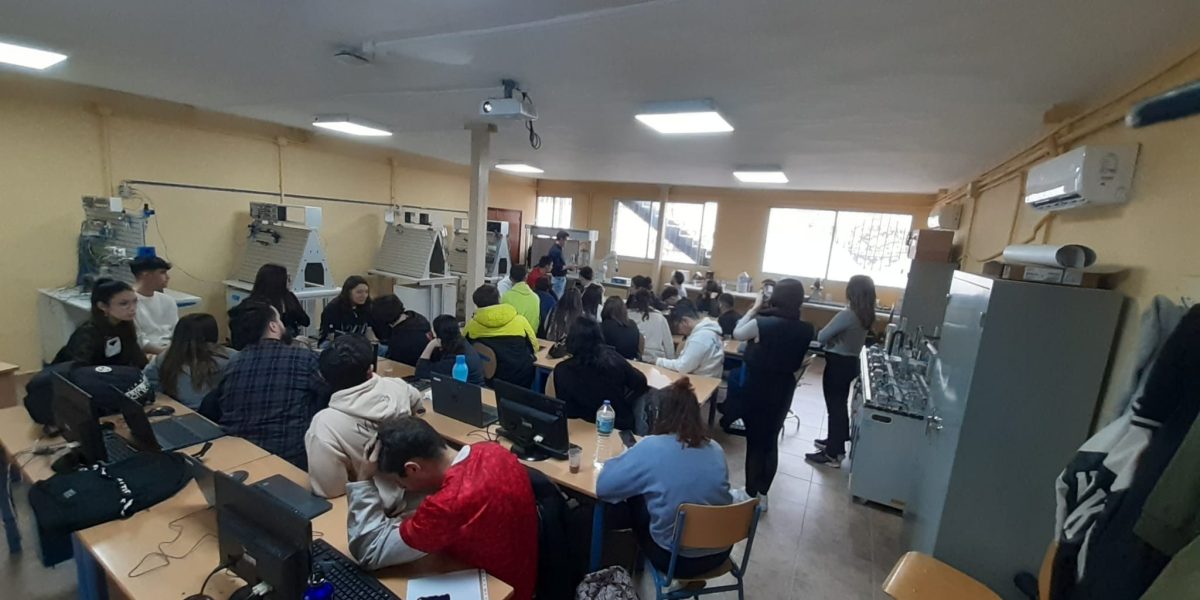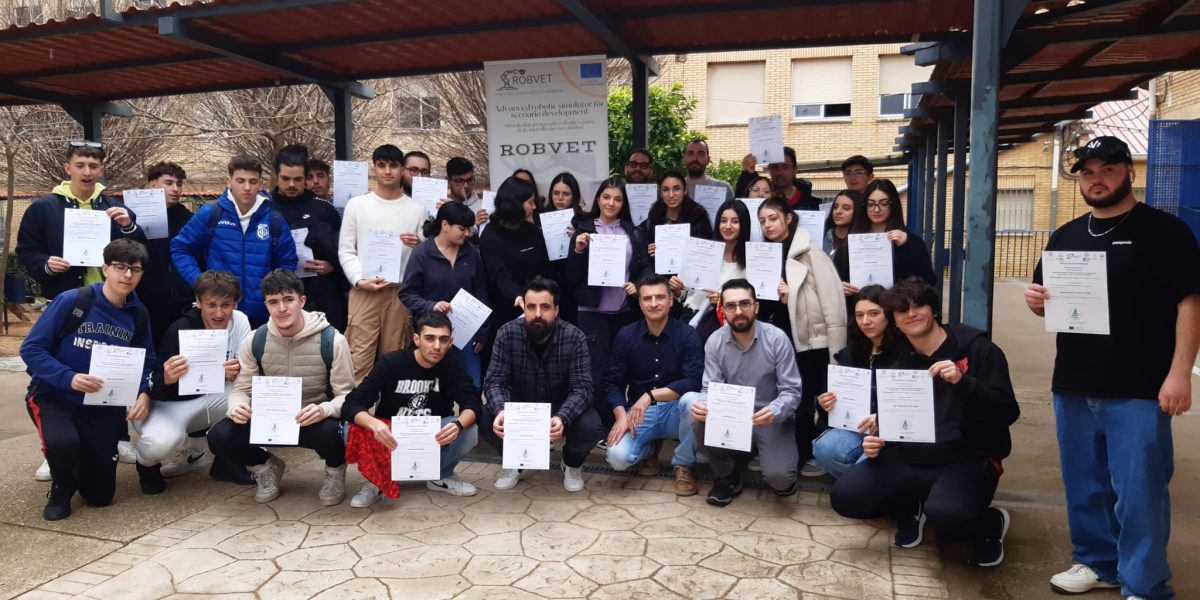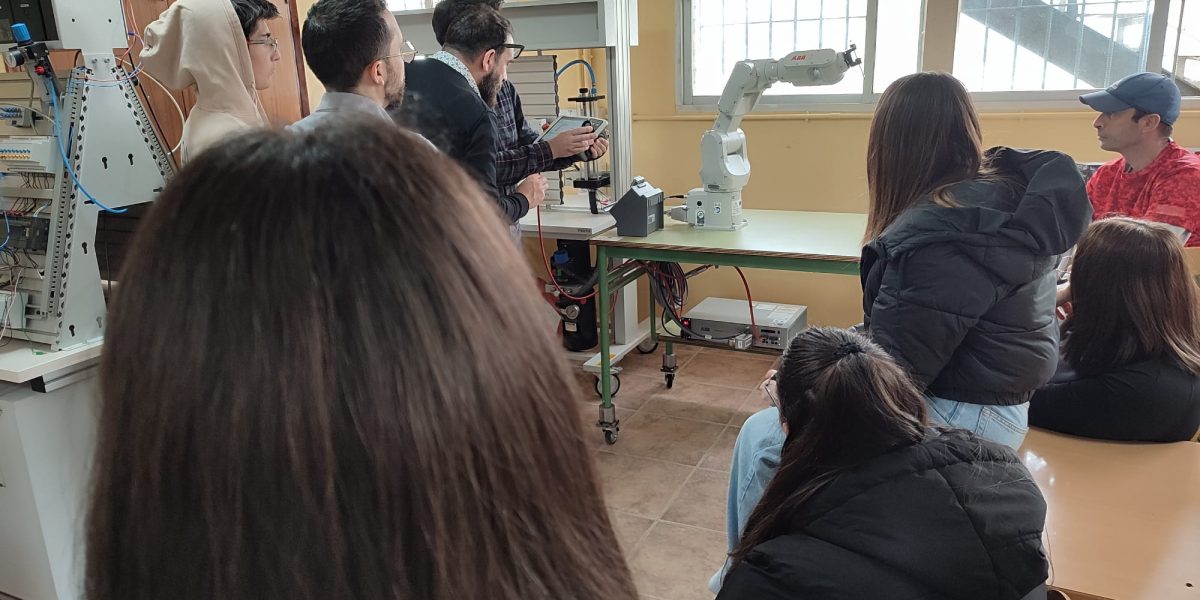Training 5 – La Carolina (Spain) & Prague (Czech Republic)
(February 13-15, 2023)
..
The fifth training of the ROBVET project took place from February 13th to 15th, 2023, simultaneously in La Carolina (Spain), hosted by IES Pablo de Olavide, and in Prague (Czech Republic), coordinated by ARP. Teachers, technicians, and students from partner institutions participated in advanced sessions focused on the practical applications of the MyCobot280 robot in real contexts, such as Industry 4.0, home automation, and the Internet of Things (IoT).
In La Carolina, participants from Spain (IES Pablo de Olavide), Portugal (CEPROF), Cyprus (Synthesis), and Turkey (Hi-Sac) attended the training. Meanwhile, in Prague, representatives from Czech Republic (ARP), Poland (CKZ), and Italy (Start Smart) followed the same program.
The training began with an overview of the current state of robotics, highlighting its role in real-world environments, including industrial automation, home automation, and sensor communication. These sessions provided participants with updated knowledge of key technologies supporting the ROBVET project’s development.
Practical activities focused on the advanced use of the MyCobot280 robot and its integration with technologies such as Arduino and external sensors. Participants worked on the robot’s configuration, programming, and control, solving specific challenges and applying practical solutions to educational and real-life scenarios.
In La Carolina, exercises explored robotics applied to home automation and IoT, where the MyCobot280 interacted with sensors and responded to controlled inputs via Arduino. Demonstrations showcased its integration into Industry 4.0 processes, focusing on component handling, assembly, and collaborative work with ABB industrial robots.
At the same time, in Prague, participants followed identical content with an emphasis on advanced simulations and the use of specialized software. Practical sessions included manual programming using FlexPendant and working with RobotStudio, applying digital twin simulations to replicate realistic industrial scenarios.
Both locations offered visits to their educational facilities and cultural sites. In La Carolina, partners toured the IES Pablo de Olavide facilities and enjoyed a guided visit to the local historical museum. In Prague, participants explored the ARP training center and engaged in collaborative discussions, fostering technical and cultural exchange.
On the final day, the training concluded with a joint evaluation of the skills acquired and the presentation of certificates to all participants.
The fifth training strengthened progress in integrating the MyCobot280 with IoT technologies, sensors, and Industry 4.0 applications. Participants enhanced their programming skills with tools such as FlexPendant and RobotStudio, while collaboration between teachers, technicians, and students promoted the exchange of knowledge across partner institutions. The connection between robotics and education was further reinforced, laying the groundwork for implementing these technological solutions in real vocational training environments.
Teachers and students emphasized the value of the training, which allowed them to acquire new technical skills, apply innovative solutions, and build stronger bonds within the ROBVET partnership.
